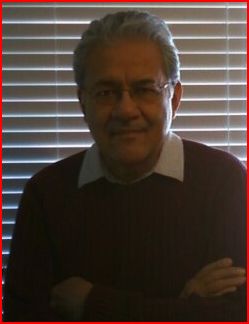
All of my life, I’ve seen them. Yet they were invisible. I didn’t see the homes they left, the mothers and fathers and brothers and sisters and other family members they left behind, all of them standing in front of a shed or lean-to or some other construction they called home. I didn’t see them as they followed a path to the north, looking back every so many paces, didn’t see the tears, didn’t hear the deep breaths they took, didn’t feel the weight that would beat down on their shoulders for the rest of their lives as they walked toward El Norte.
I saw them after their journey, which at that time was not the trek infected with narcos or coyotes or Minutemen or even Border Patrol agents. In the early 1950s, people could cross la frontera without fear, come back and forth without having to pay anyone. It was a natural crossing, one that promised enough earnings to last the year and one that allowed the migrants, campesinos, to return to their homes with enough money to last the year.
But lately, I’ve been paying closer attention to the migrants, the campesinos who live among us. I’ve talked with them more, gotten a sense of their incredible bravery and dedication to their task and especially to their families—so much so they willingly risk their lives to provide for the ones they had to leave behind.
But now, that safe journey is a road to uncertainty, to losing everything to thieves, to being thrown in jail, to being beaten or raped or left to die in the desert, or if they’re lucky, to being returned to Mexico with even less than they left with. It is a journey few American citizens, White or of Mexican descent, would ever experience or know anything about.
I’ve decided to write a poem, dedicated to the migrants, to the women especially, about what they experience. Not all who come to the United States experience the same dangers, but to the ones who suffer harm or die in search of a better life, I dedicate this poem. The experiences I’ve outlined, above and in the poem, are things some younger members of my family have suffered.
I hope the poem captures readers’ attention and generates emotions and compassion, as well as inspires readers to think more closely about the people who harvest the food, clean the toilets, build the homes and cook the food. They do more, of course, and their lives here, if they are lucky enough to survive the journey, are still laden with danger and indignities—but that’s for another time and poem.
El Molcajete del Diablo
the sky is at its most ominous
in the desert—it is the repository of snake-eyed
glints, a place where molcajete stone is born
distance doesn’t exist there
nor does it in the blackest
sector of the sky: things just appear,
flare like anemones and then, and no
one knows how long it takes,
they disappear—
like the light in the woman’s eyes
in whom direction is now a drowning prayer,
like the warmth now cooling in her womb,
like the wish to eat cilantro and cebollas
and serranos again straight out of a molcajete,
to feel them on her tongue, feel the serranos
commanding the others to merge into
a little universe of their own
this woman who left comfort and comales,
sarapes and fires as small as babies,
who left a mother now feeling the desert
wind in her bones again, a father knowing
that men are at least as cruel
as the astral specters waiting
to do what they wish
with his daughter—yes,
she left these things because, like
God’s processes, staying
or leaving may mean the same
as wandering the black desert
or waking to an interstate
flooded with cars, each swollen,
ironically, with a driver’s failing career—
she walks on: she could be her baby
in its own darkness and knowing nothing
about how the quiet universe
waits for her, for the right time
to let another black outcome flower
*****
Leonard Adame has retired from teaching college English. He now plays drums in various bands, takes photographs, reads mystery novels to a fault and has published poetry in college anthologies. He most enjoys re-learning about human beings from his grandkids. Contact him at giganteescritor@hotmail.com.

